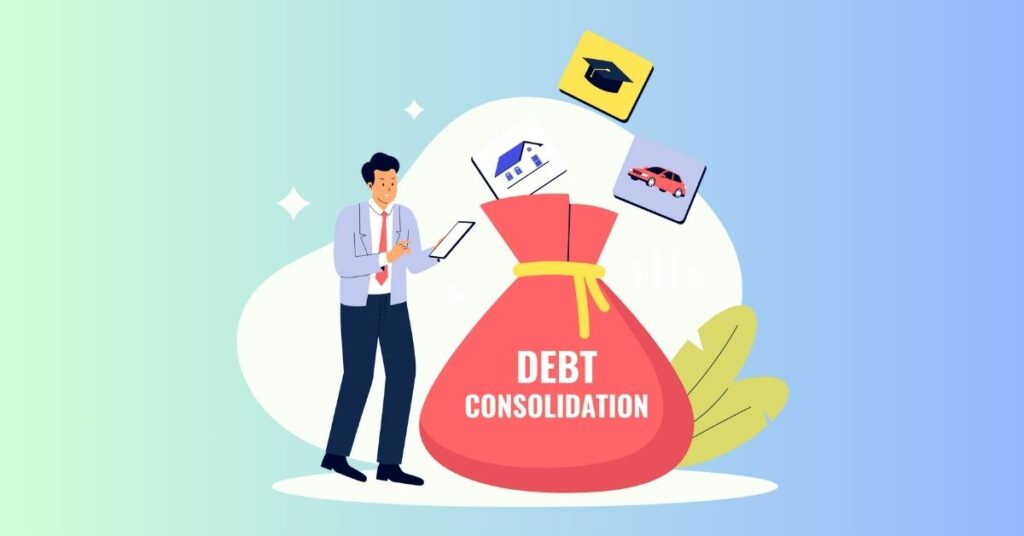
Debt Consolidation Loan
If juggling multiple credit card bills, personal loans, and high-interest debts feels overwhelming, a debt consolidation loan could be the fresh start you need. By rolling all your debts into one manageable payment—often at a lower interest rate—you can simplify your finances and potentially save hundreds or even thousands of dollars in the long run.
However, not all debt consolidation loans are created equal. Choosing the right one for your situation requires a bit of research and planning. Here’s how to make the best choice.
1. Understand How Debt Consolidation Loans Work
A debt consolidation loan is a type of personal loan used to pay off multiple existing debts. After consolidating, you make one monthly payment to the new lender instead of paying several creditors separately. The goal is to reduce your total interest costs, lower your monthly payments, and make your repayment process more straightforward.
The most common types of consolidation loans include:
- Personal loans (unsecured) – based on your credit score and income.
- Home equity loans or HELOCs (secured) – backed by your home’s equity.
- Balance transfer credit cards – offering 0% interest for a promotional period.
2. Evaluate Your Financial Situation
Before comparing lenders, take an honest look at your current debts and budget. Make a list of your:
- Total outstanding balances
- Interest rates
- Monthly payments
- Credit score and income
Knowing these numbers helps you determine how much you need to borrow and what kind of loan terms you might qualify for. If your credit score is below 650, for example, you may face higher interest rates. In that case, improving your credit or finding a co-signer could help you secure better terms.
3. Compare Interest Rates and Fees
Interest rates vary widely depending on the lender, your creditworthiness, and whether the loan is secured or unsecured. Even a small difference in rates can make a big impact over time.
For example, consolidating $15,000 in credit card debt from 22% interest to a 12% loan could save you over $1,000 in interest per year.
Be sure to check for hidden fees, such as:
- Origination fees (typically 1–8% of the loan amount)
- Late payment fees
- Prepayment penalties (for paying off your loan early)
Always compare the APR (Annual Percentage Rate)—it reflects both the interest rate and fees, giving you a clearer picture of the loan’s total cost.
4. Choose the Right Loan Term
The loan term (length of repayment) can greatly affect your monthly payment and total interest paid.
- Shorter terms (2–3 years) mean higher monthly payments but lower total interest.
- Longer terms (5–7 years) lower your monthly payments but increase interest over time.
Pick a term that balances affordability with overall savings. A longer loan might look easier month-to-month, but it could cost you more in the end.
5. Look Beyond Traditional Banks
While banks and credit unions are reliable options, don’t overlook online lenders. Many offer competitive rates, faster approvals, and flexible requirements.
You can use loan comparison tools to prequalify with multiple lenders without impacting your credit score. This lets you see estimated rates before applying formally.
If you’re a homeowner, you might also consider a home equity loan—but remember that it’s secured by your property, so missed payments could put your home at risk.
6. Watch for Scams and Red Flags
Unfortunately, the debt relief industry attracts scams. Be cautious of companies that:
- Guarantee approval regardless of credit
- Demand upfront fees
- Pressure you to sign immediately
- Promise to “erase” your debt
Legitimate lenders are transparent about their terms and never ask for payments before approval.
7. Make a Long-Term Plan
A debt consolidation loan can be a powerful tool, but it’s not a cure-all. To make it truly effective:
- Avoid taking on new debt while repaying the loan.
- Stick to a realistic budget.
- Consider working with a financial advisor or credit counselor for support.
When managed wisely, a debt consolidation loan can help you regain control, boost your credit score, and set you on a path to financial freedom.
Bottom Line:
Choosing the best debt consolidation loan starts with knowing your financial picture and comparing all your options carefully. With a thoughtful approach, you can simplify your payments, reduce your stress, and finally make real progress toward becoming debt-free.


